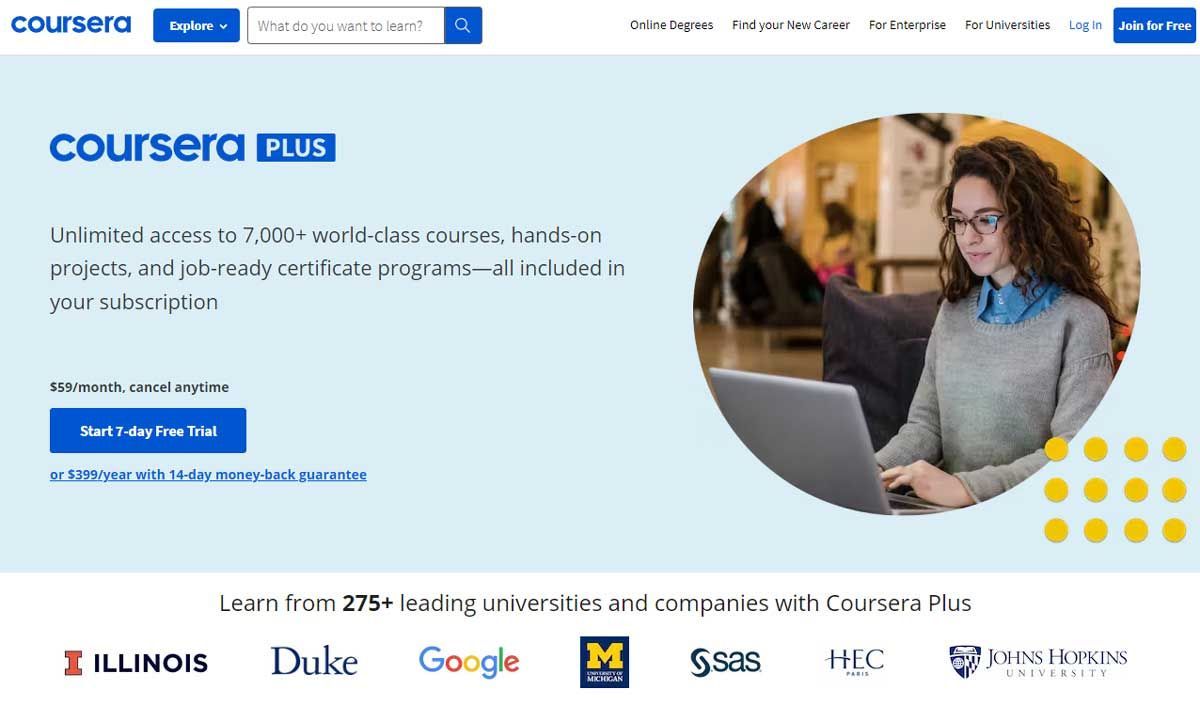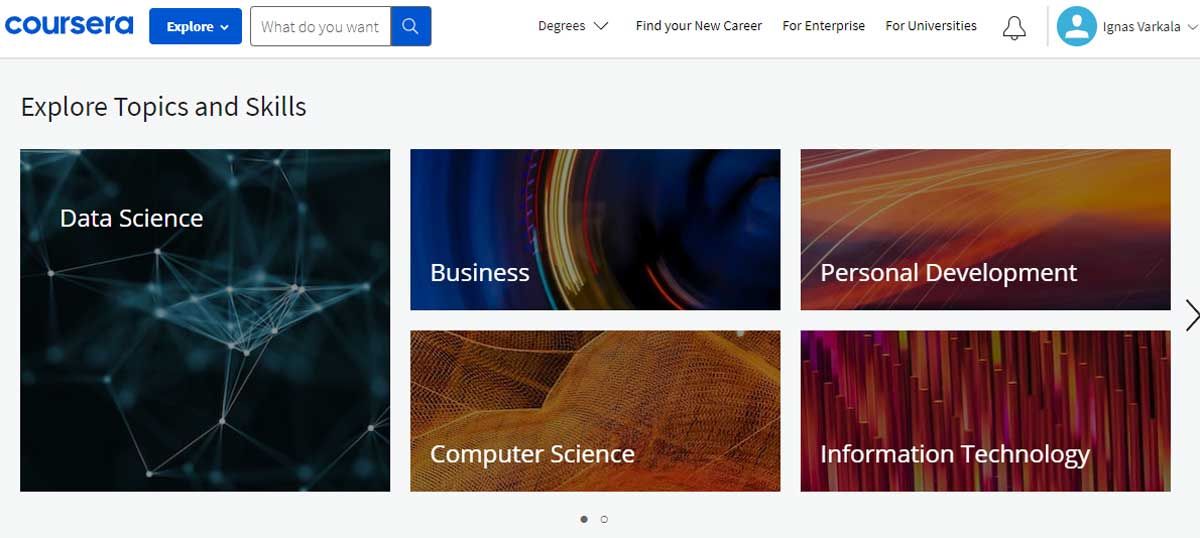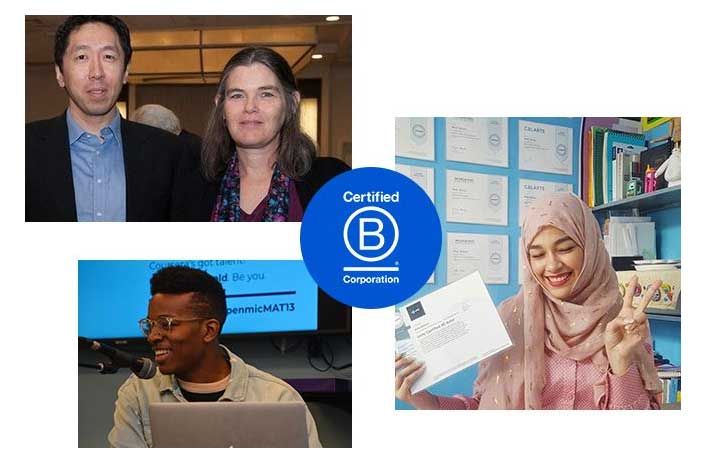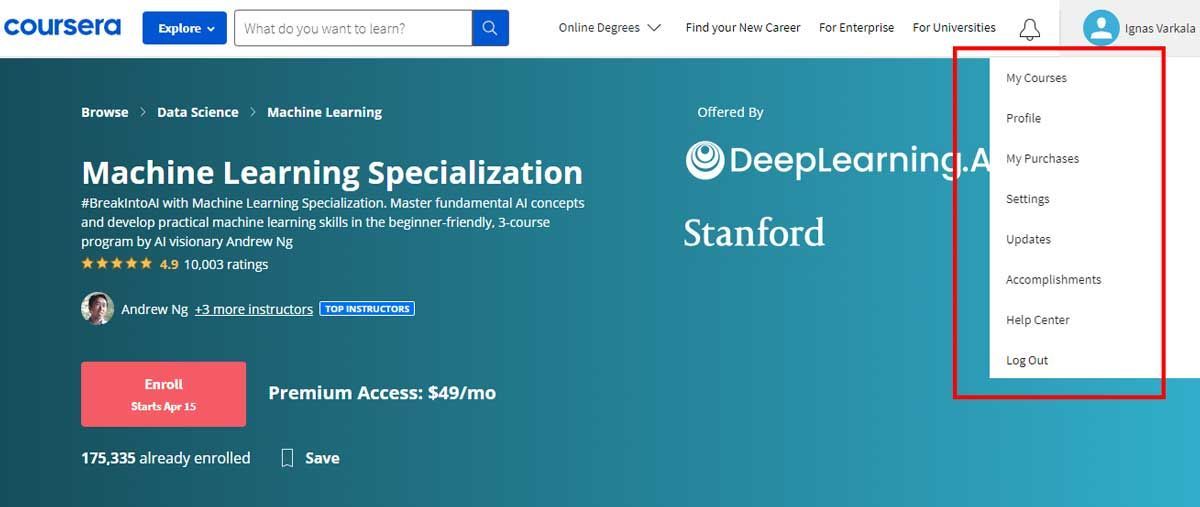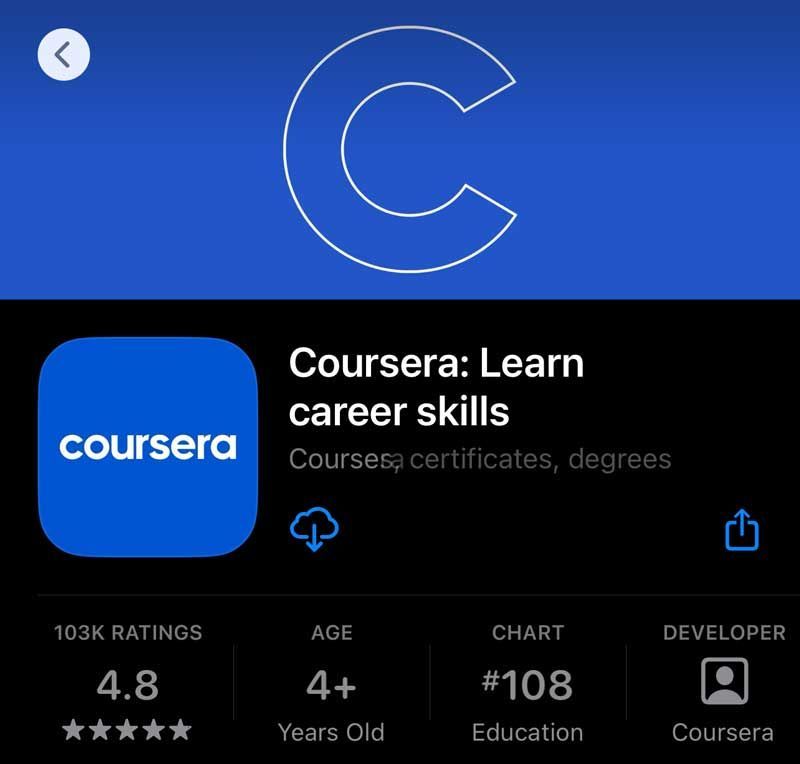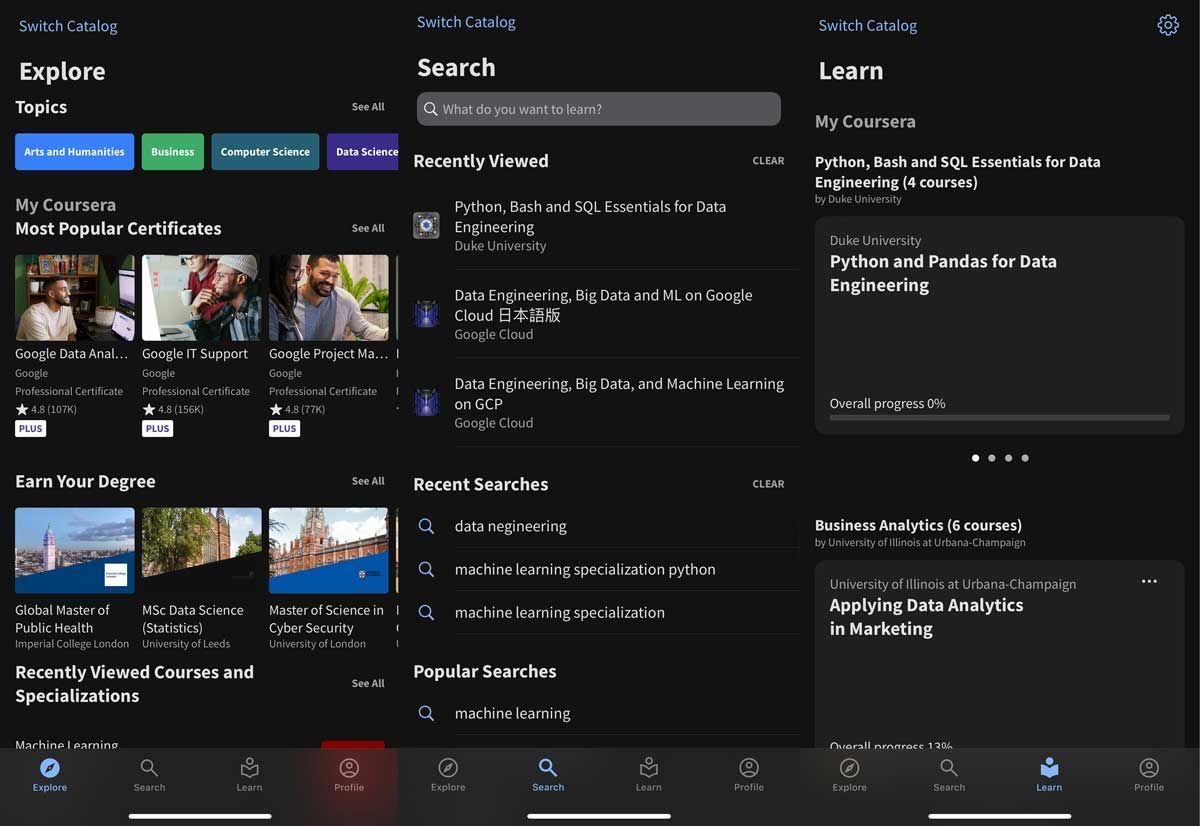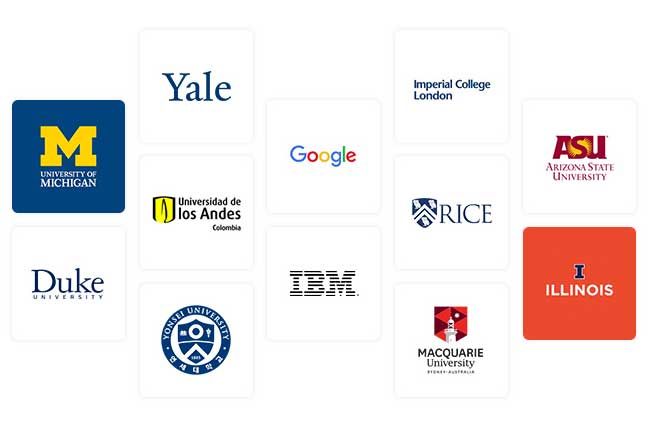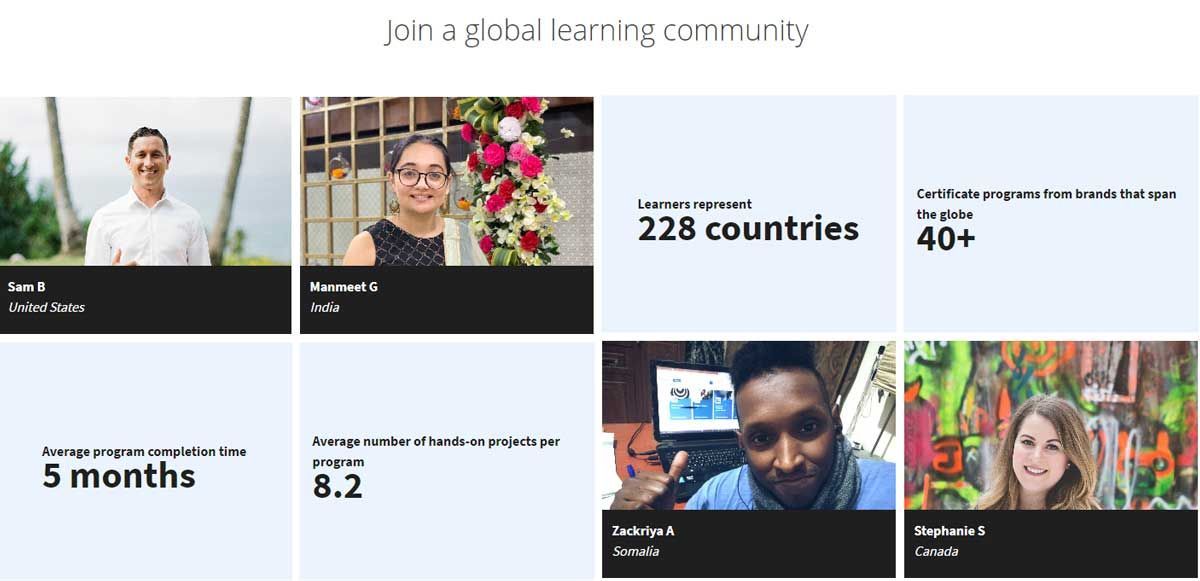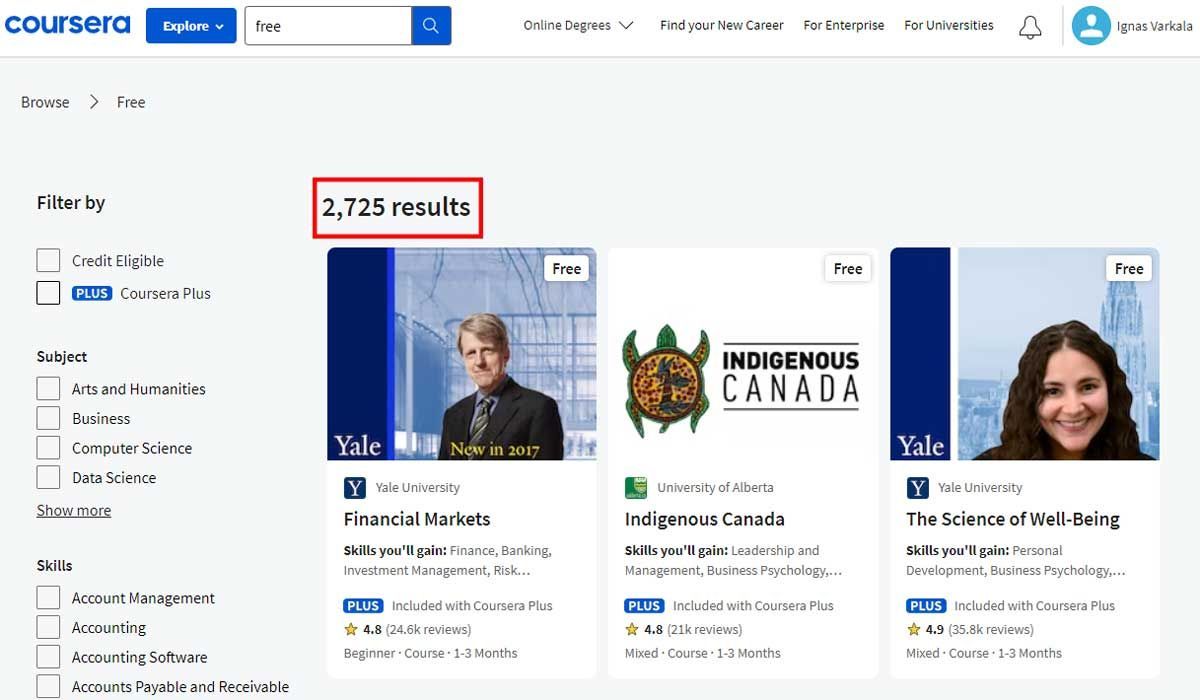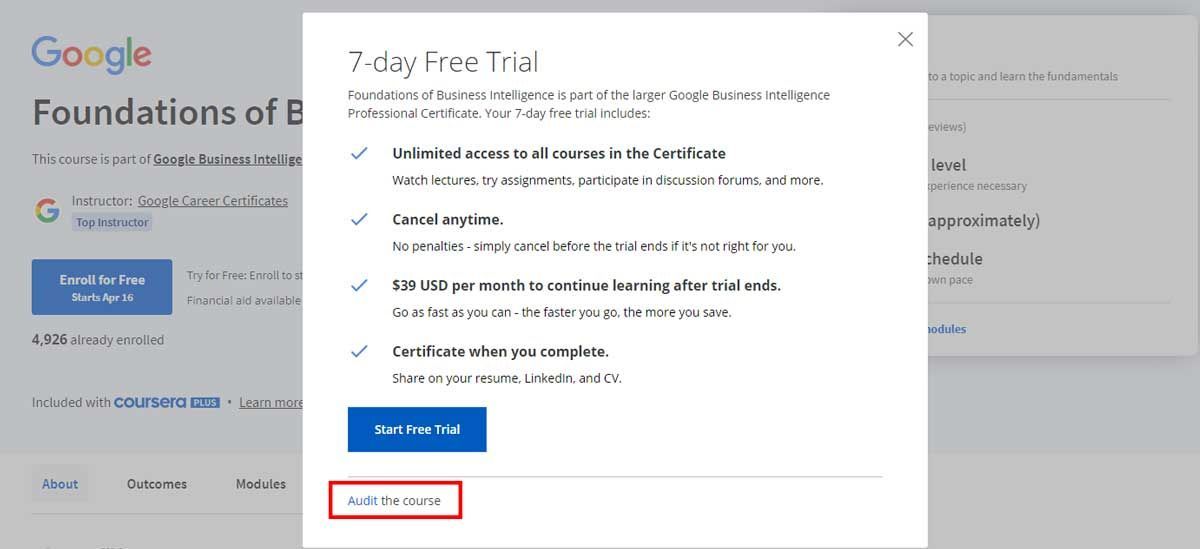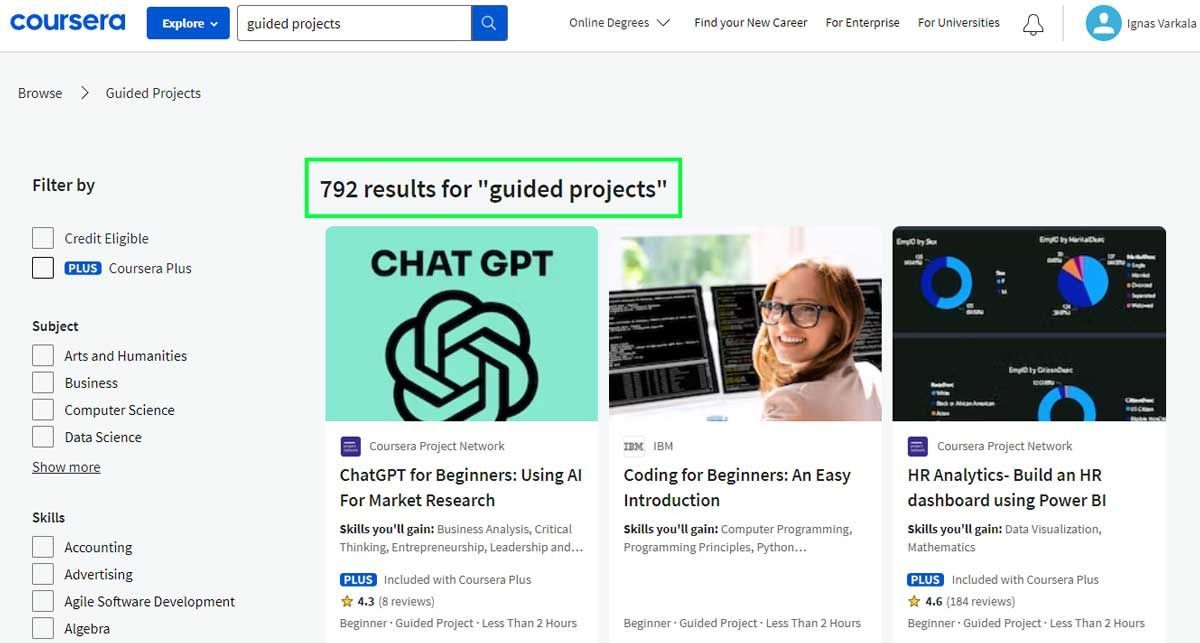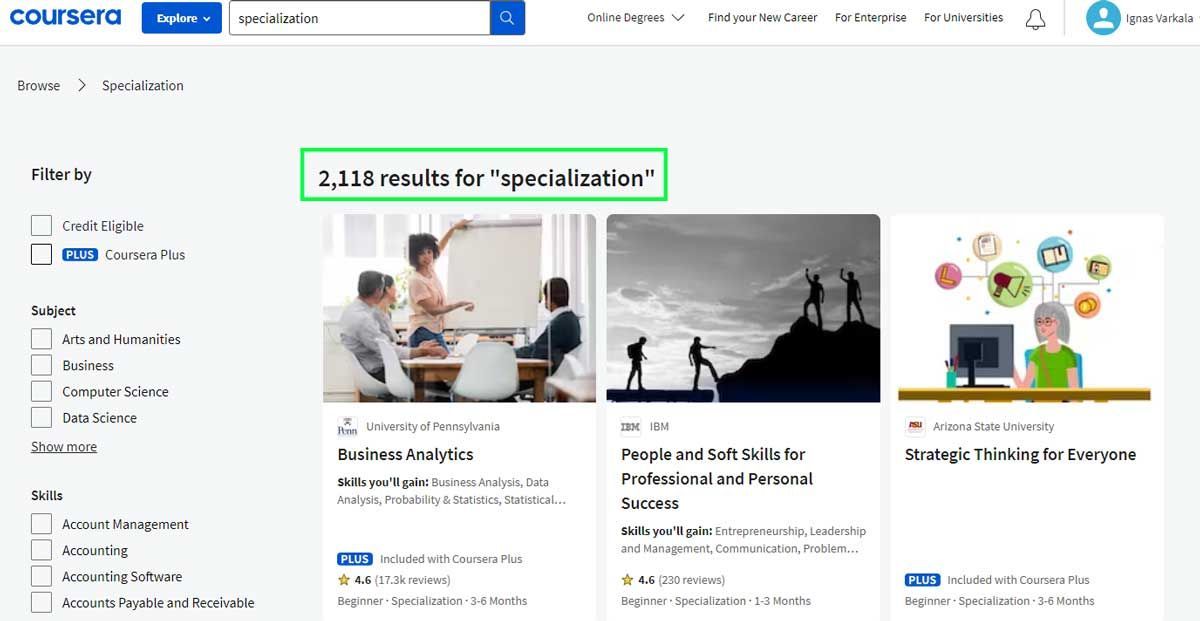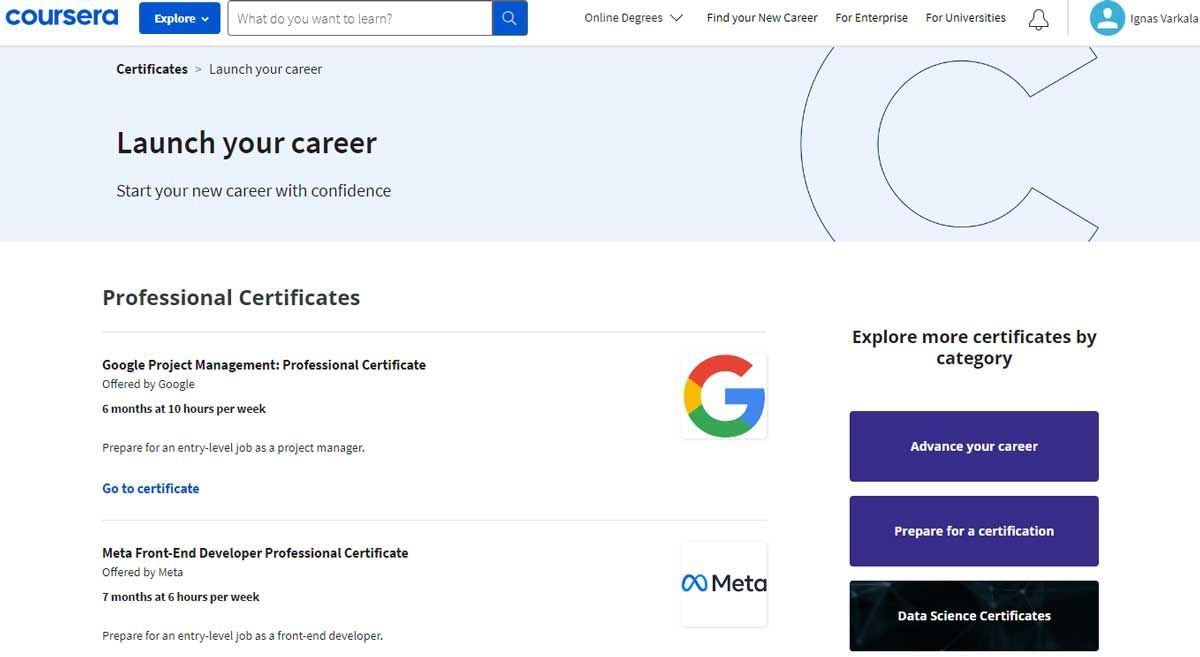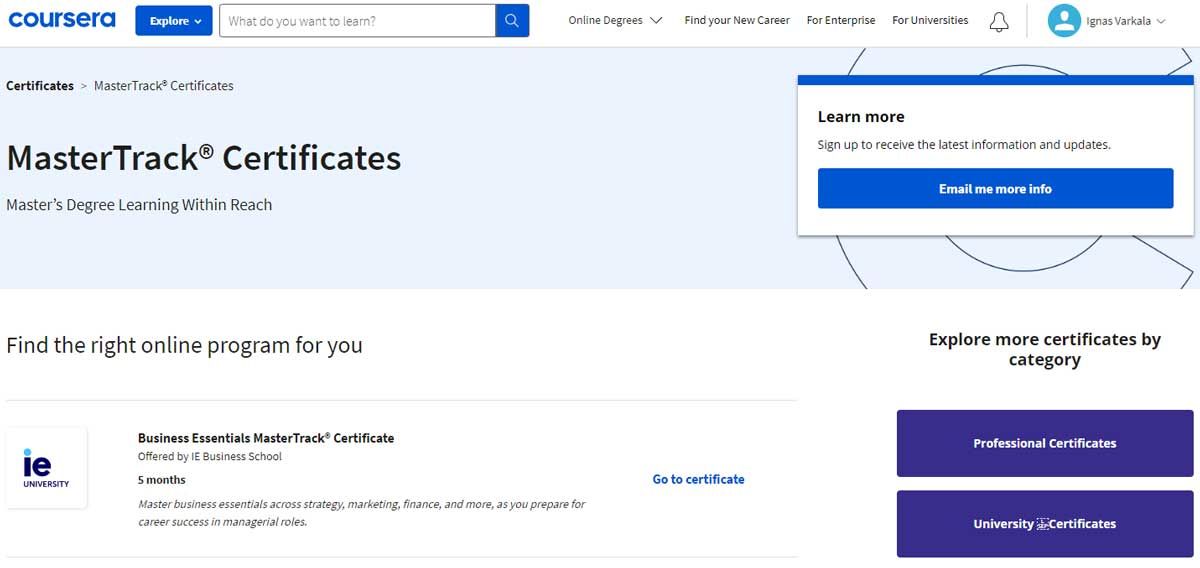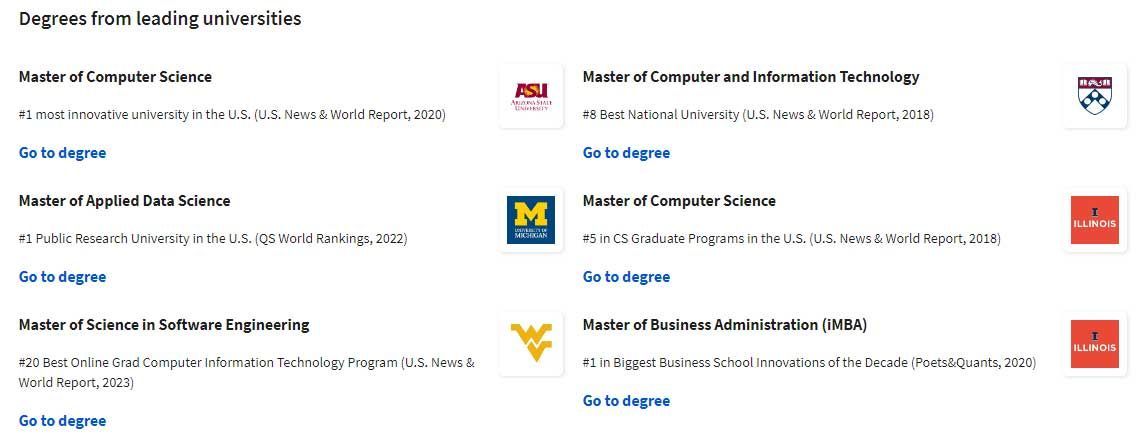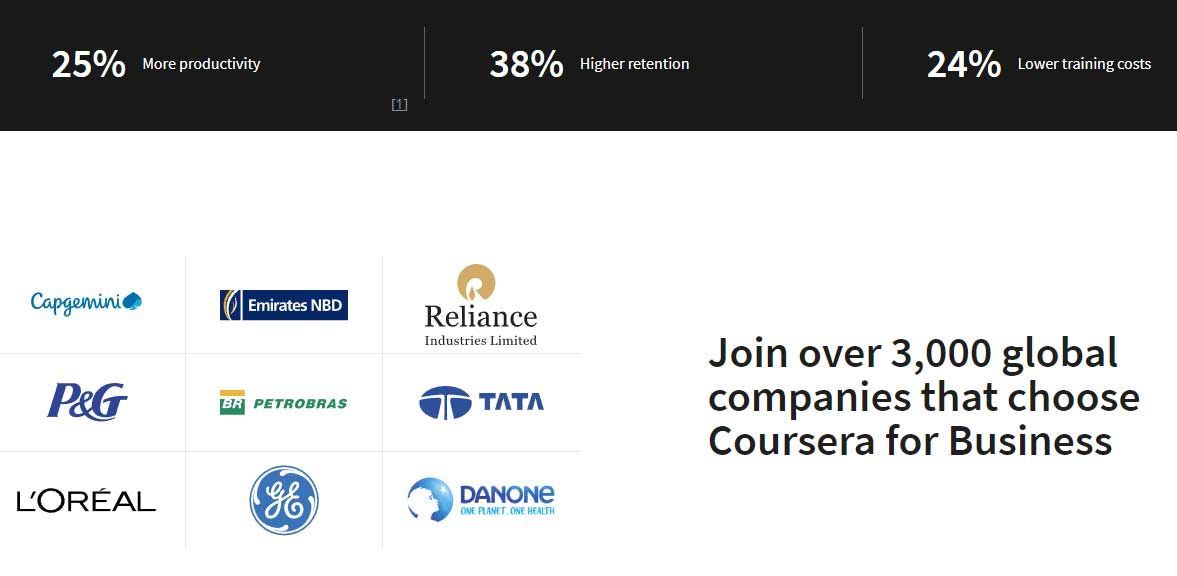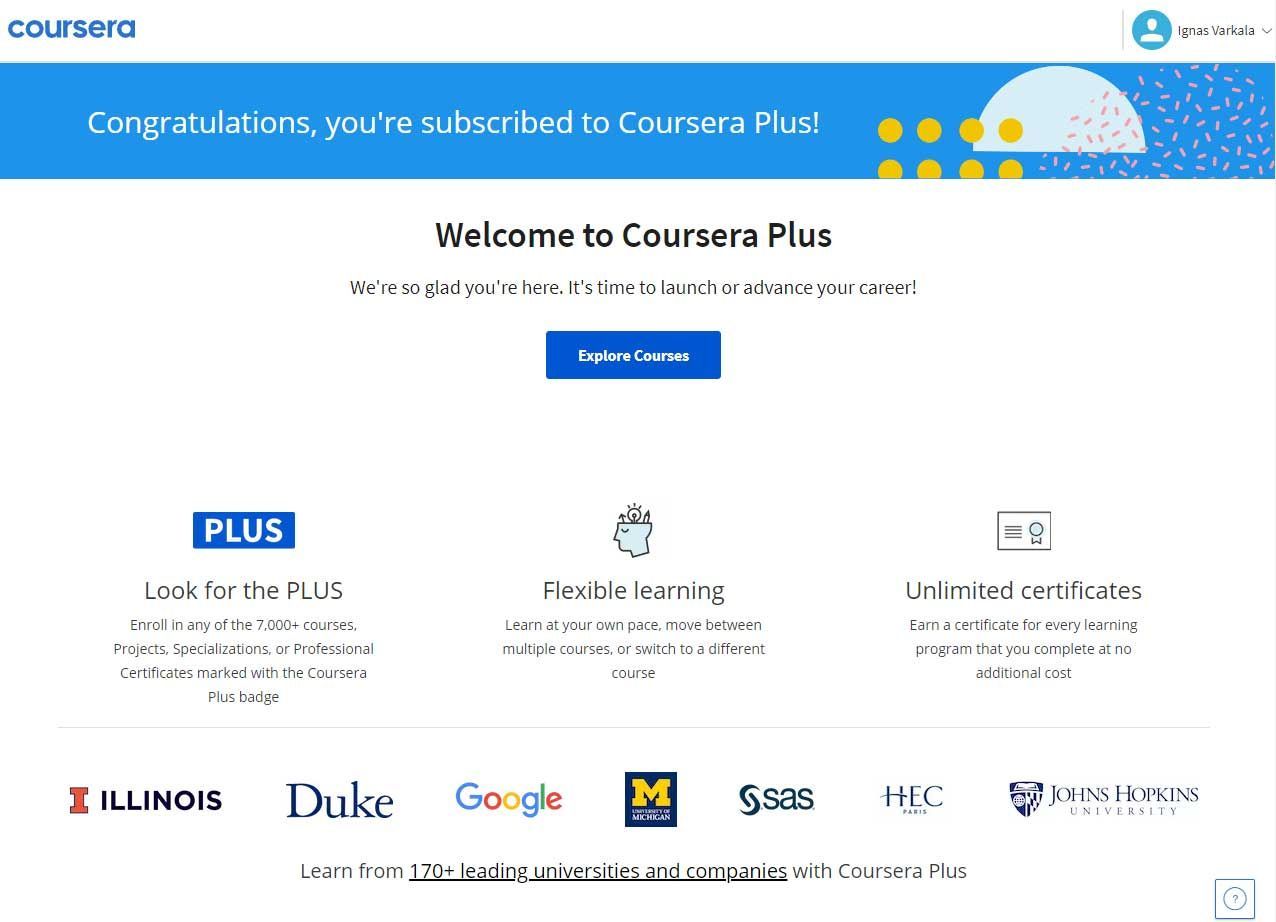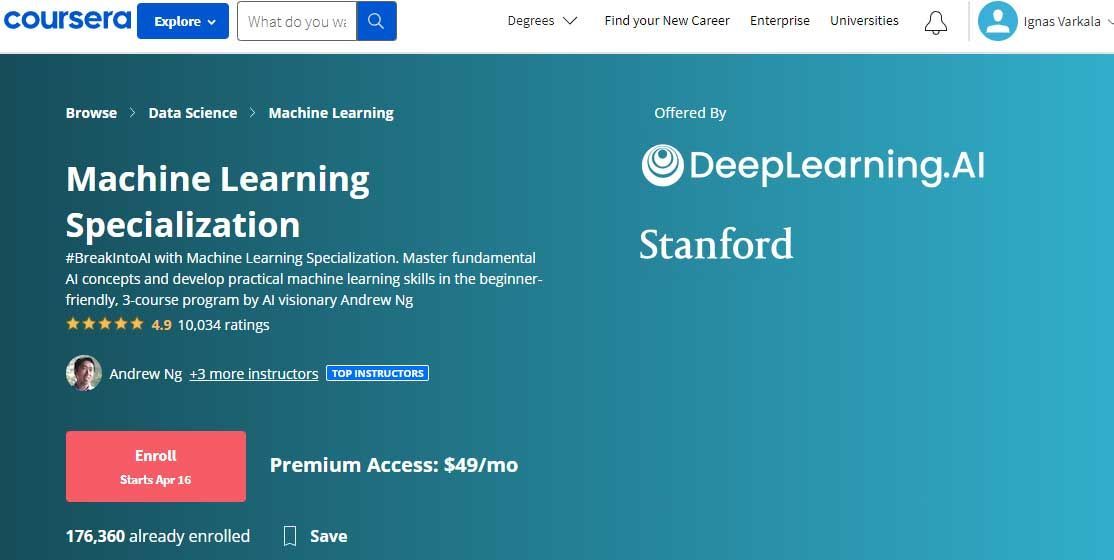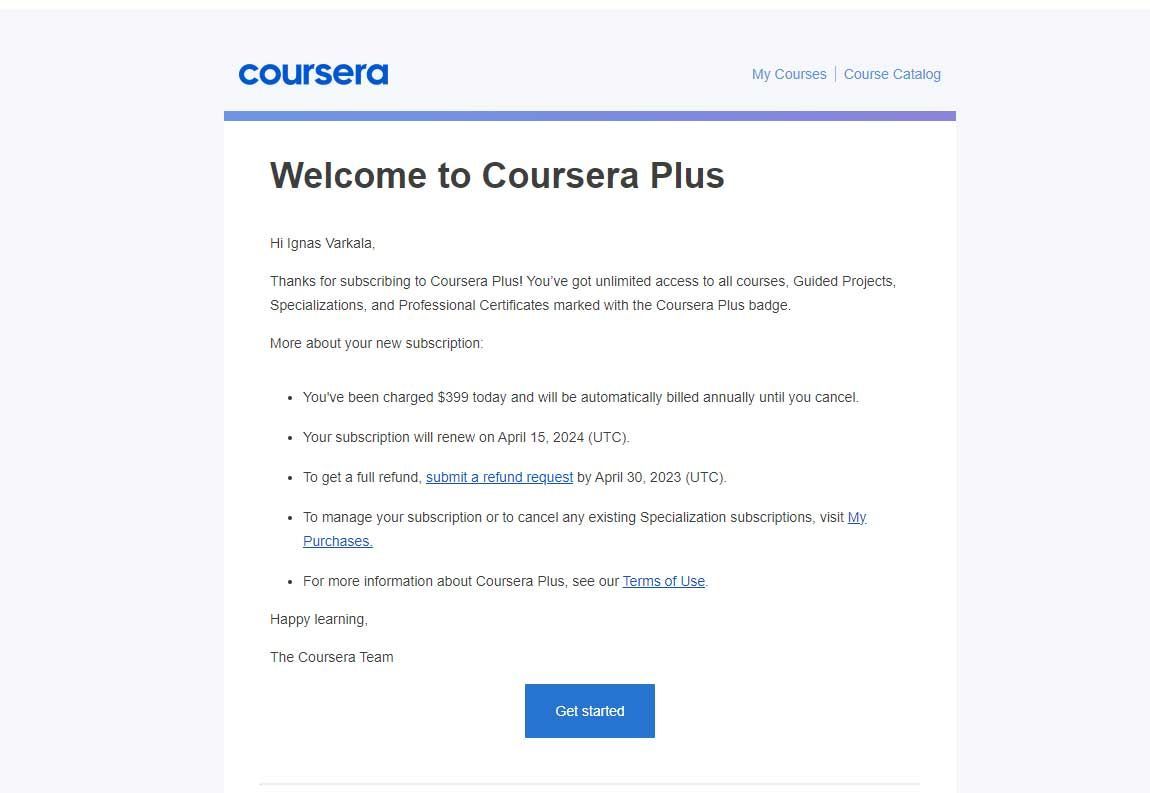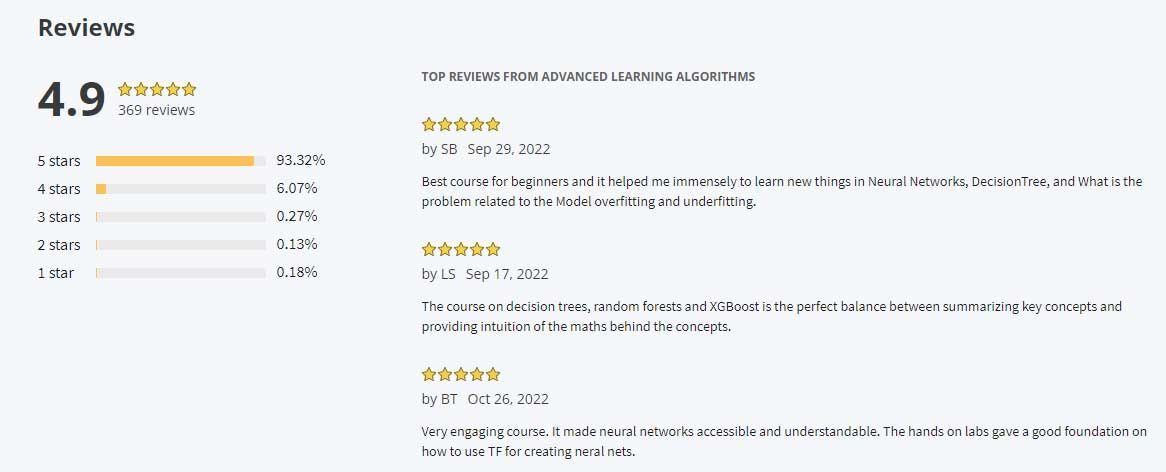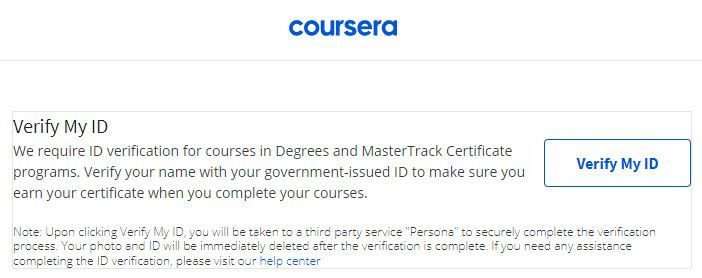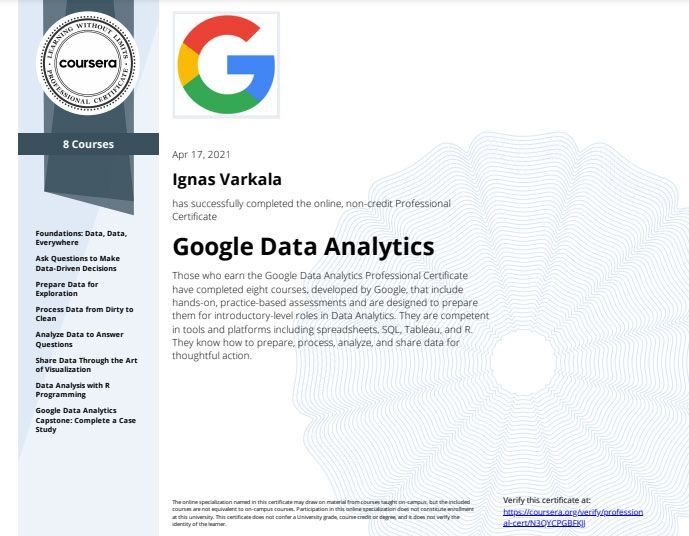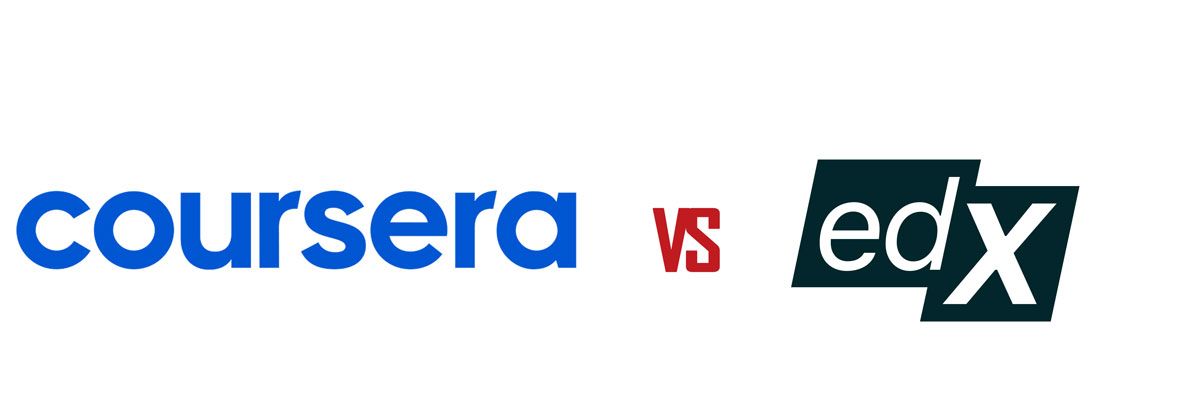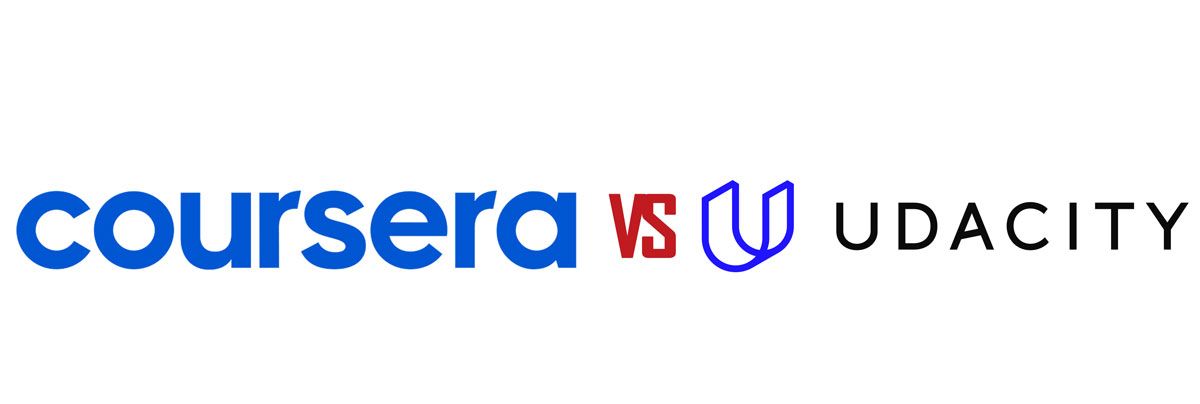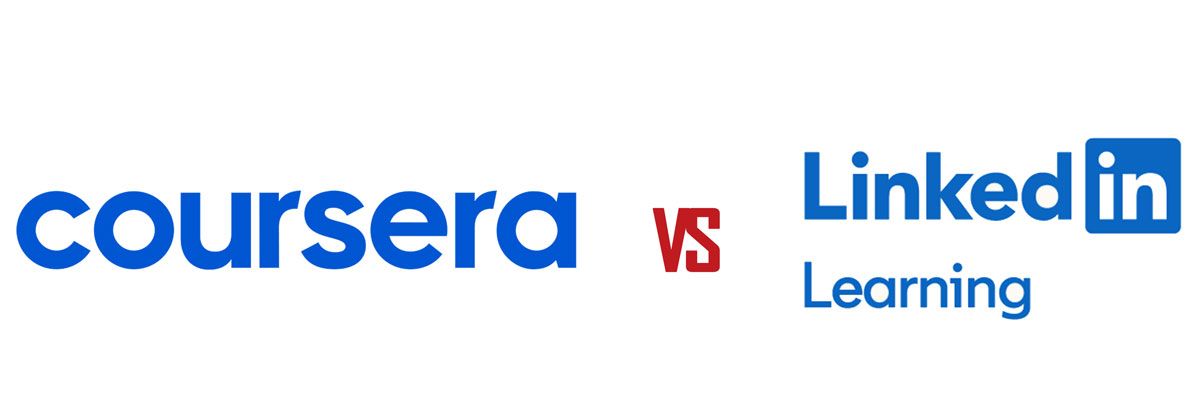Some of the links on this page may link to our affiliates. Learn more about our affiliate policies.
Last Updated: April 16, 2023
I wrote this Coursera review to share my experience after spending last 8 years on this online learning platform taking numerous courses and specializations. As someone who has always been passionate about learning, I was thrilled to discover Coursera when I first embarked on my online learning journey. Since then, I have taken numerous courses on this platform and completed five specializations that consistently pique interviewers' interest when they contact me for job interviews. In this comprehensive Coursera review, I will share my personal experiences, insights, and tips, so that you can decide whether this e-learning platform is the right fit for your educational and professional goals.
Over the years, I have seen Coursera grow and evolve, constantly expanding its offerings and improving the user experience. As a result, Coursera has become a go-to platform for millions of learners worldwide, from free courses to industry-recognized professional certificates and accredited degrees. I have been impressed by the quality of the courses and the expertise of the instructors, and my educational journey on Coursera has undoubtedly contributed to my career growth.
In this article, I will take you through an in-depth analysis of Coursera, discussing its history, course offerings, pricing, and accreditation, among other aspects. I will also compare it with some of its competitors, helping you determine if Coursera is the best choice for your needs. So, let's dive in and explore the world of Coursera together.
Overview of Coursera
Coursera is an online learning platform that offers a wide range of courses, specializations, professional certificates, and degrees in various fields, such as business, technology, data science, health, and the arts. Founded in 2012 by Stanford University professors Andrew Ng and Daphne Koller, Coursera's mission is to provide universal access to high-quality education.
Coursera partners with prestigious universities and institutions worldwide to deliver courses taught by top experts in their respective fields. The platform features a mix of free and paid courses, with some offering the option to earn verified certificates upon completion. In addition to individual courses, Coursera provides more comprehensive learning experiences through Guided Projects, Specializations, Professional Certificates, MasterTrack Certificates, and online degree programs.
Coursera's user-friendly platform allows learners to access video lectures, reading materials, quizzes, and assignments at their own pace, making it convenient for people with varying schedules and learning preferences. The platform also offers a mobile app for iOS and Android devices, enabling users to access their courses on the go.
Overall, Coursera is a popular e-learning platform that caters to a diverse audience, offering a wide array of courses and programs designed to help individuals acquire new skills, enhance their knowledge, and advance their careers.
Brief history and mission
Coursera was founded in 2012 by two Stanford University computer science professors, Andrew Ng, and Daphne Koller. They were inspired by the potential of technology to make high-quality education accessible to everyone, regardless of their location or socio-economic status. Their mission was to create a platform enabling lifelong learning, empower individuals with the knowledge and skills they need to succeed and transform lives through education.
Founders and background
Andrew Ng is a renowned expert in artificial intelligence and machine learning. Before founding Coursera, he was the director of the Stanford Artificial Intelligence Lab (SAIL) and later became the Chief Scientist at Baidu, a leading Chinese internet company. Daphne Koller is an expert in machine learning and probabilistic modeling. She has contributed significantly to artificial intelligence, and her research has been widely recognized and awarded.
Growth and milestones
Since its inception, Coursera has experienced tremendous growth in course offerings and the number of users. Some of the key milestones in Coursera's journey include:
- April 2012: Coursera's launch with three partner universities – Stanford, Princeton, and the University of Pennsylvania – offering 43 courses.
- September 2012: The platform reached one million users, demonstrating the growing demand for online education.
- February 2013: Coursera added its 33rd university partner, expanding its course offerings to over 200.
- November 2013: Signature Track, a verified certificate program that added credibility to the online learning experience.
- June 2014: Coursera launched its first Specialization, a series of courses designed to help learners gain mastery in a specific subject area.
- September 2014: Coursera for Business was introduced, allowing companies to provide their employees' access to the platform's courses for professional development.
- March 2015: Coursera announced its first fully online Master's degree program in partnership with the University of Illinois Urbana-Champaign.
- April 2016: The platform introduced Guided Projects, a new learning format designed to provide hands-on experience in various skills.
- June 2017: Coursera launched its monthly subscription plan, Coursera Plus, providing unlimited access to a vast library of courses and specializations.
- September 2020: The platform reached 77 million learners worldwide, with over 6,000 courses, 500 specializations, and 30-degree programs available.
Coursera's impressive growth is a testament to its commitment to providing high-quality, affordable, and accessible education to learners worldwide. As the platform continues to expand and innovate, its impact on the global educational landscape is undeniable.
Coursera Platform Features
In this section, we will discuss the various features of the Coursera platform, focusing on the user interface, mobile app, and accessibility options.
User interface and experience
Coursera's user interface is designed to be clean, intuitive, and user-friendly, making it easy for learners to navigate and find the courses that interest them. The platform offers a robust search functionality that allows users to filter courses by subject, level, language, duration, and more. In addition, each course has a dedicated landing page that provides a comprehensive overview of the course content, structure, instructors, prerequisites, and user reviews.
Once enrolled in a course, learners can access video lectures, reading materials, quizzes, and peer-reviewed assignments through a well-organized and easy-to-navigate dashboard. The platform also supports features such as video speed control, closed captions, and adjustable playback quality, allowing users to customize their learning experience to their preferences. Below is a screenshot of what Coursera looks like once you are logged in.
What you see is a screenshot of the Machine Learning Specialization program's landing page with me being logged into my Coursera account. If you click on your name in the top right corner, you can find a lot of useful places to visit on the platform. This is where you would go if you want to see courses in progress, purchase history, change your settings, download your certificates, get help, and more.
Mobile app availability
As a busy individual, I've found the Coursera mobile app on my iPhone to be a game-changer for learning on the go. The convenience of having access to countless courses from top universities and institutions, right at my fingertips, has enabled me to broaden my knowledge and skillset during my daily commute, lunch breaks, or while waiting in line at the grocery store.
Coursera offers mobile app downloads for both: Android and Apple.
The intuitive user interface, the ability to download course materials for offline access, and the seamless synchronization between my mobile and desktop devices have made it easier than ever to stay engaged with my coursework, track my progress, and complete assignments. Overall, Coursera's mobile app has become an indispensable tool for my personal and professional development, allowing me to make the most of every spare moment in my day.
The app also supports notifications, enabling users to stay updated on course announcements, upcoming deadlines, and new course materials. Overall, the Coursera mobile app complements the web platform and ensures a seamless learning experience across devices.
Accessibility and inclusivity
Coursera is committed to making its platform accessible and inclusive for all learners. The platform adheres to the Web Content Accessibility Guidelines (WCAG) 2.0, ensuring its content is accessible to people with disabilities.
Most video lectures on Coursera come with closed captions, making the content accessible to deaf or hard-of-hearing users. Additionally, the platform supports screen reader compatibility, allowing visually impaired users to navigate the website and access course materials.
Coursera also offers a range of courses in multiple languages, catering to a global audience. In addition, some courses provide subtitles in different languages, making the content more accessible to non-English speakers.
By prioritizing accessibility and inclusivity, Coursera is working towards making high-quality education available to everyone, regardless of their background or abilities.
Partnered Universities and Organizations
Coursera's success is partly attributed to its strong partnerships with renowned universities and organizations. This section will discuss the platform's collaborations with top-tier institutions and industry leaders and its global reach.
Top-tier institutions
Coursera has partnered with more than 200 prestigious universities and institutions worldwide, ensuring that the courses offered on the platform are of the highest quality. These partnerships include Ivy League universities, such as Yale, Princeton, and the University of Pennsylvania, as well as renowned international institutions, like the University of Oxford, the University of Cambridge, and the École Polytechnique Fédérale de Lausanne (EPFL).
By collaborating with these top-tier institutions, Coursera guarantees learners access to world-class educational resources curated and taught by leading experts in their respective fields. This helps ensure that the knowledge and skills acquired through Coursera's courses are relevant, up-to-date, and recognized by employers.
Industry collaborations
In addition to partnering with top universities, Coursera collaborates with industry leaders to develop courses and specializations tailored to the job market's needs. For example, companies like Google, IBM, Amazon Web Services, and Salesforce have partnered with Coursera to create content that equips learners with in-demand skills, such as data analysis, cloud computing, and digital marketing.
These industry partnerships ensure the course content is relevant and practical and help learners gain a competitive edge in the job market. In many cases, completing a course or specialization developed by an industry partner can lead to professional certification or recognition, further enhancing a learner's credentials.
Global reach and localization
Coursera's global reach is another factor that differentiates it from other e-learning platforms. With partnerships spanning North America, Europe, Asia, and Australia, Coursera can offer courses that cater to a diverse audience, transcending geographical boundaries.
To make the platform more accessible to non-English speakers, Coursera provides course subtitles in multiple languages, including Spanish, French, and more. Additionally, some courses are taught entirely in languages other than English, making it easier for non-native speakers to engage with the content.
By partnering with universities and organizations worldwide and localizing its content, Coursera is helping democratize access to high-quality education, empowering learners from diverse backgrounds to achieve their personal and professional goals.
Course Offerings and Program Types
| Type | Guided Projects | Courses | Specializations | Professional Certificates | MasterTrack Certificates | Degrees |
|---|---|---|---|---|---|---|
| Average time commitment | 1-2 hours | 4-12 hours | 1-3 months | 1-6 months | 4-7 months | 2-4 years |
| Cost Starting at | $9.99 | Free | $39/month | $39/month | $2,000 | $9,000 |
Coursera offers a diverse range of courses and programs to suit the learning needs of various individuals. This section will discuss the different types of offerings available on the platform, focusing on free courses and the audit option.
Free courses
Coursera currently provides 2,725 free courses, enabling learners to explore various subjects without financial constraints. These courses are available in various fields, including computer science, data science, business, IT, language learning, math & logic, personal development, social sciences, health, arts & humanities and physical science & engineering. Taking free Coursera courses before signing up for the paid version of the platform, is a great way to get yourself familiarized with the platform and content on it.
While free courses offer valuable learning experiences, some limitations should be considered. From my experience it is not possible to surely make a call on the overall quality of the platform itself based on a few free courses. However, it may give you an idea of how the platform is put together.
Access and limitations
While Coursera's free courses grant access to video lectures, reading materials, and some quizzes, they may include only some of the features and resources available in the paid versions. For instance, free courses often exclude graded assignments, peer-reviewed projects, and course certificates.
Access to free course content may sometimes be time-limited, requiring learners to complete the course within a specific timeframe. Moreover, Coursera may only sometimes offer free versions for all its courses, especially those that are part of Specializations, Professional Certificates, or degree programs.
Audit options
For learners interested in accessing course content without paying for the full course experience, Coursera offers an "audit" option for many of its courses. Auditing a course allows learners to access video lectures and reading materials for free, but it typically excludes graded assignments, quizzes, and certificates. Auditing is a good way to get familiar with the course material if finances are tight. However, if you want your hard work to pay off as well as get something to show on your LinkedIn, then you might want to consider the paid version.
To audit a course, learners can visit the course's enrollment page and look for the "Audit" or "Full Course, No Certificate" option. However, it's important to note that not all courses on Coursera offer an audit option, and the availability of this feature may vary depending on the course or program. Another thing worth noting is that "Auditing" can only happen on individual course level and not on the Specialization level.
Guided projects
Guided Projects are a unique offering on Coursera designed to provide learners with hands-on experience in a specific skill or concept. These projects emphasize practical learning and real-world applications, allowing learners to gain confidence and showcase their newly acquired skills to potential employers.
Hands-on learning
Guided Projects are structured as step-by-step exercises led by an instructor, using video demonstrations and interactive tools to guide learners through a specific task or problem. These projects typically take 30 minutes to a few hours to complete and cover various topics, such as data analysis, web development, digital marketing, and more.
By engaging in hands-on learning, learners can apply the concepts they've learned in a practical context, reinforcing their understanding and building their skillset. This experiential approach to learning can be especially beneficial for individuals who learn best through practice and real-world examples.
Real-world applications
One of the key benefits of Guided Projects is their focus on real-world applications. Each project is designed to simulate a task or problem that learners might encounter professionally, helping them gain relevant experience that can be directly applied to their careers.
Upon completion of a Guided Project, learners can showcase their work in their portfolio or on their resumes, demonstrating their practical skills and experience to potential employers. This can be a valuable asset for job seekers looking to stand out in a competitive job market or professionals seeking to advance in their current roles.
In summary, Coursera's Guided Projects provide a unique opportunity for learners to acquire hands-on experience, develop practical skills, and gain insights into real-world applications, making them an essential component of the platform's course offerings.
Specializations
Specializations on Coursera are structured learning paths that consist of a series of related courses designed to help learners develop expertise in a specific subject or skill. These programs offer in-depth learning experiences and often culminate in a capstone project, allowing learners to apply their knowledge and showcase their proficiency in the topic.
In-depth learning
Specializations are ideal for learners who wish to delve deeper into a particular subject or acquire advanced skills in a specific area. Each specialization is designed by experts from top universities or industry partners and includes a sequence of courses that build upon one another, progressively developing the learner's understanding and abilities.
The courses within a specialization typically include video lectures, reading materials, quizzes, and assignments, providing a comprehensive and well-rounded learning experience. Upon completing all the courses in a specialization, learners earn a specialization certificate, which can be shared on their LinkedIn profile, resume, or portfolio to showcase their expertise.
Capstone projects
Many specializations on Coursera culminate in a capstone project, a final, integrative assignment that allows learners to apply the knowledge and skills they have gained throughout the program. Capstone projects often involve solving a real-world problem or creating a tangible product, such as a business plan, software application, or research proposal.
By working on a capstone project, learners can demonstrate their mastery of the subject matter and their ability to apply their skills practically. These projects can also serve as valuable portfolio pieces, showcasing the learner's expertise and accomplishments to potential employers or clients.
In conclusion, Coursera's Specializations provide learners with in-depth, structured learning experiences that enable them to develop expertise in specific subjects or skills. Including capstone projects further enhances the value of these programs, allowing learners to apply their knowledge and showcase their proficiency.
Professional Certificates
Coursera's Professional Certificates help learners acquire job-ready skills and earn industry-recognized certifications. These programs are often created in collaboration with leading companies and organizations, ensuring that the content is relevant, up-to-date, and aligned with the job market's needs. Currently, there are over 30 Professional Certificates available for pursuing on Coursera. At the time of this writing I have completed two of the Professional Certificate programs taught by Grow with Google:
Google Data Analytics, and
Google Project Management Certificate.
Industry-recognized certifications
Professional Certificate programs focus on specific skill sets in high demand across various industries. By partnering with leading companies such as Google, IBM, and Salesforce, Coursera ensures that the content of these programs is aligned with the expectations and requirements of potential employers.
Upon completing a Professional Certificate program, learners receive a certificate recognized and endorsed by the partnering company or organization. This industry recognition adds credibility to the learner's resume and can help differentiate them from other job applicants, increasing their chances of securing a job or promotion.
Career advancement opportunities
Coursera's Professional Certificates aim to equip learners with the skills and knowledge to advance their careers or transition into new roles. These programs typically cover practical, job-related topics such as data analysis, digital marketing, project management, and software development.
Many Professional Certificate programs also include hands-on projects, case studies, and real-world examples, further enhancing the learner's understanding and ability to professionally apply their newly acquired skills.
In addition to the industry recognition provided by the certificate, completing a Professional Certificate program can also lead to other career advancement opportunities, such as networking with professionals in the field, gaining access to job boards and resources, or receiving discounts on further education and certifications.
Coursera's Professional Certificates allow learners to gain job-ready skills, earn industry-recognized certifications, and enhance their career prospects, making them a valuable option for those looking to improve their professional standing or transition into new roles.
MasterTrack Certificates
Coursera's MasterTrack Certificate programs allow learners to engage in graduate-level coursework from top universities, providing a focused and in-depth learning experience. These programs combine the flexibility of online learning with the rigor of on-campus programs, making them an attractive option for professionals looking to further their education. Courses taken via MasterTrack Certificate programs carry credit hours that you can apply to further your education. Currently there are around 30
MasterTrack programs on Coursera.
Graduate-level coursework
MasterTrack Certificates are designed to provide learners with a deep understanding of a subject area, typically at the graduate level. These programs are created and taught by renowned faculty from top universities, ensuring a high-quality learning experience. The coursework within a MasterTrack program may include video lectures, reading materials, assignments, quizzes, and hands-on projects, designed to challenge learners and help them develop advanced skills.
MasterTrack programs typically take several months to complete and require a significant time commitment, making them suitable for individuals serious about advancing their education and career prospects.
Credit transfer options
One of the key benefits of completing a MasterTrack Certificate program is the potential to earn credit toward a graduate degree. In addition, many MasterTrack programs offer the option to transfer credits earned from the certificate program to a related master's degree program at the partnering university, allowing learners to fast-track their graduate education.
The credit transfer process and requirements may vary depending on the specific MasterTrack program and the partnering university, so learners must research and understand the transfer policies before enrolling.
In conclusion, Coursera's MasterTrack Certificates allow learners to engage in graduate-level coursework and potentially earn credit toward a master's degree, making them a valuable option for professionals looking to further their education and enhance their career prospects.
Online Degrees
Coursera offers fully online degree programs in partnership with prestigious universities, allowing learners to earn accredited bachelor's and master's degrees from the comfort of their own homes. These programs provide a flexible and accessible alternative to traditional on-campus degree programs, making higher education more accessible to a wider range of learners. Starting cost for an online degree on Coursera is around $9,000.
Bachelors and Masters programs
Online degree programs on Coursera cover a variety of subjects, including business, computer science, data science, public health, and more. These programs are designed to provide learners with a comprehensive and in-depth education, equipping them with the knowledge and skills needed to excel in their chosen fields.
The curriculum for online degree programs is developed by renowned faculty members from the partnering universities and often mirrors the content of their on-campus counterparts. In addition, learners enrolled in online degree programs can access video lectures, reading materials, assignments, quizzes, and interactive discussion forums, enabling them to engage with the course content and their peers in a dynamic and supportive learning environment.
Accreditation and recognition
One of the key advantages of earning an online degree through Coursera is the assurance of accreditation and recognition. Coursera partners with top-tier institutions to offer these programs, ensuring that online degrees hold the same value and prestige as their on-campus equivalents.
Upon completing an online degree program, graduates receive a diploma from the partnering university, which is typically identical to the one awarded to on-campus graduates. This means employers and other educational institutions will recognize the online degree as a legitimate and accredited credential, making it a valuable asset for career advancement or further education.
In summary, Coursera's online degree programs offer learners the opportunity to earn accredited bachelor's and master's degrees from top universities in a flexible and accessible format. These programs provide a high-quality, recognized, and respected education, making them an excellent option for individuals looking to advance their careers or pursue higher education.
Coursera for Business, Teams, and Campus
Coursera also offers tailored solutions for businesses, teams, and educational institutions, providing customized learning experiences to meet the unique needs of these organizations. These offerings include Coursera for Business, Coursera for Teams, and Coursera for Campus, catering to enterprise organizations, small teams, and academic institutions.
Enterprise solutions
Udacity's course catalog covers various technology-related topics, including data science, artificial intelligence, machine learning, programming, cloud computing, and more. In addition, the platform's Nanodegree programs are comprehensive, structured courses focusing on specific skills or career paths, often cCoursera for Business is designed to help companies upskill and reskill their workforce by providing access to a comprehensive library of courses, specializations, and professional certificates. In addition, companies can create custom learning programs for their employees, track progress, and measure the impact of their learning initiatives on business outcomes.
By leveraging Coursera's extensive catalog of content and expert instructors, companies can ensure their employees stay up-to-date with the latest industry trends and technologies, ultimately driving business growth and innovation.reated in collaboration with leading tech companies to ensure industry relevance and practical application.
Team development and upskilling
Coursera for Teams is tailored to the needs of smaller teams and organizations, providing access to a curated selection of courses and programs designed to develop specific skills and competencies. Team leaders can assign courses, track progress, and assess the impact of the learning initiatives on team performance.
This offering enables teams to quickly upskill in critical areas to their success, ensuring they remain competitive and agile in a rapidly evolving business landscape.
Academic integrations
Coursera for Campus is an offering designed specifically for educational institutions, allowing them to integrate Coursera's high-quality courses and programs into their existing curricula. In addition, this solution provides universities and colleges access to a vast library of content, which can supplement on-campus instruction or provide additional learning opportunities for students.
Institutions can also create custom programs, track student progress, and leverage Coursera's advanced analytics to assess the impact of their learning initiatives on student outcomes. By partnering with Coursera, educational institutions can enhance their course offerings, expand their reach, and better prepare their students for success in the job market.
In conclusion, Coursera's tailored solutions for businesses, teams, and educational institutions provide organizations with the tools and resources to develop and upskill their workforce or student body, ensuring they remain competitive and successful in today's rapidly evolving world.
Pricing and Subscription Plans
Understanding the pricing and subscription options available on Coursera is crucial for learners to make informed decisions about their education. This section will explore the various pricing structures and plans for Coursera's offerings, including free courses, individual course pricing, specializations, certificate programs, MasterTrack and degree program fees, and the Coursera Plus subscription.
Free courses and auditing
Coursera offers several free courses for learners who want to gain knowledge without investing in a paid course or program. These free courses often allow learners to access video lectures and reading materials but may not include quizzes, assignments, or certificates upon completion.
Additionally, many paid courses on Coursera offer an audit option, allowing learners to access the course materials for free without receiving a certificate or having access to graded assignments.
Individual course pricing
Individual courses on Coursera typically have a one-time fee, which ranges from $29 to $99, depending on the course's content and duration. This fee grants learners access to all course materials, quizzes, assignments, and a shareable certificate upon completion.
Specializations and certificate programs
Specializations and Professional Certificate programs on Coursera have a subscription-based pricing model, usually ranging from $39 to $79 monthly. Upon completion, learners have access to all courses within the specialization or program, quizzes, assignments, and a shareable certificate.
MasterTrack and degree program fees
MasterTrack Certificate programs and online degree programs have separate pricing structures. MasterTrack programs typically have a one-time fee that ranges from $2,000 to $5,000, depending on the program. Online degree programs have fees that vary based on the institution and the specific program but can range from $15,000 to $45,000 or more for the entire program.
Coursera Plus subscription
Coursera Plus is a subscription plan that grants learners unlimited access to most of Coursera's course catalog, including specializations and Professional Certificate programs. As you see in the screenshot above, I went with the yearly $399 subscription for Coursera Plus. However, I did this based on my research and seeing if Coursera Plus includes the specializations that I wanted to sign up for.
Benefits and features
The Coursera Plus subscription offers several benefits, such as the ability to enroll in multiple courses and programs simultaneously, unlimited access to course materials, and priority access to new courses and features. This plan is ideal for learners who plan to take multiple courses or specializations within a year, as it provides significant cost savings compared to individual course fees.
Annual cost and value
Coursera Plus costs $399 per year, which is billed annually. For learners who plan to invest in their education and take multiple courses or programs throughout the year, the Coursera Plus subscription offers excellent value. In addition, it can help save money compared to purchasing individual courses or programs separately.
Coursera offers different pricing and subscription options to accommodate learning needs and budgets. From free courses and auditing options to individual course pricing, specializations, certificate programs, and the Coursera Plus subscription, learners can choose the best plan for their educational goals and financial situation. Please be sure to check out the
Help page for what courses are available and not available for Coursera Plus subscribers.
Scholarships and Financial Aid
Coursera is committed to making education accessible to all. As part of this mission, they offer various scholarships and financial aid options to learners who may be unable to afford the fees associated with their courses and programs. In this section, we will discuss the eligibility and application process for financial aid, as well as available discounts and promotions that can help reduce the cost of learning on Coursera.
Eligibility and application process
To be eligible for financial aid on Coursera, learners must demonstrate financial need and a commitment to completing the course or program. The application process typically involves filling out a form that details the applicant's financial situation, educational background, and reasons for seeking financial aid. Applicants must also explain how they plan to use the knowledge and skills gained from the course or program to improve their lives and contribute to their communities.
Coursera reviews the financial aid application, and applicants are usually notified of the outcome within 15 days. If approved, the applicant will receive full or partial financial assistance for the course or program, which can cover the cost of course materials, quizzes, assignments, and certificates.
Available discounts and promotions
Coursera occasionally offers discounts and promotions to help reduce the cost of its courses and programs. These discounts may be available for a limited time or apply to specific courses and programs. Learners can stay informed about these promotions by subscribing to Coursera's newsletter or following their social media channels.
Some partnering universities and institutions may also offer scholarships or financial aid programs for Coursera courses. Hence, it's worth exploring these options if you're affiliated with or considering enrolling in a course from a specific institution.
In conclusion, Coursera provides various financial aid options and discounts to make its courses and programs more accessible to learners from all backgrounds. By understanding the eligibility and application process for financial aid and staying informed about available discounts and promotions, learners can explore the educational opportunities on Coursera without letting financial constraints hold them back.
Quality of Courses and Instructor Expertise
One of the key factors to consider when choosing an online learning platform is the quality of the courses and the expertise of the instructors. In this section, we will discuss the course content and structure on Coursera, the qualifications and reputation of the instructors, and user reviews and ratings, which can provide valuable insights into the overall quality of the learning experience.
Course content and structure
Coursera courses are designed and developed by faculty members from top-tier universities and institutions, ensuring that the content is rigorous, up-to-date, and relevant to the needs of learners. The courses typically include video lectures, reading materials, quizzes, assignments, and interactive discussion forums, which help create a comprehensive and engaging learning experience.
The courses often follow a structured format, with modules or weeks focusing on specific topics or skills. This format allows learners to progress through the course steadily and build upon their knowledge and understanding of the subject matter.
Instructor qualifications and reputation
The instructors on Coursera are highly qualified and experienced professionals, often holding positions as professors or researchers at prestigious universities. Many have earned advanced degrees in their respective fields and have been published widely in academic journals or authored books on their subjects.
In addition to their academic credentials, Coursera instructors often have practical experience in their fields, which enables them to provide learners with real-world examples and applications of the course content. This combination of academic expertise and practical experience ensures that learners receive a high-quality and well-rounded education.
User reviews and ratings
Coursera allows learners to rate and review their courses, providing valuable feedback on the overall quality of the learning experience. By examining these user reviews and ratings, prospective learners can gain insights into the strengths and weaknesses of a particular course or instructor, as well as the overall effectiveness of the platform.
Generally, Coursera courses receive positive reviews, with many learners praising the course content's quality, the instructors' expertise, and the platform's user-friendly interface. However, reading multiple reviews and considering individual perspectives is essential to form a well-rounded understanding of a course's quality.
In summary, Coursera offers high-quality courses with well-structured content, qualified and reputable instructors, and a positive learning experience, as evidenced by user reviews and ratings. By considering these factors, learners can decide which courses and instructors will best meet their educational needs and goals.
Flexibility and Time Commitment
Online learning platforms like Coursera offer flexibility that traditional classroom settings often cannot provide. However, it's essential to understand the time commitment required to complete a course or program. In this section, we will discuss the self-paced learning options on Coursera, deadlines and course duration, and workload expectations, helping learners plan their studies effectively.
Self-paced learning
Many courses on Coursera are designed to be self-paced, allowing learners to progress through the material at their speed. This flexibility allows learners to balance their studies with other commitments, such as work or family responsibilities. However, some courses and programs may have suggested deadlines or fixed schedules, especially for graded assignments, quizzes, or exams.
Deadlines and course duration
While most Coursera courses are self-paced, they often have suggested deadlines to help learners stay on track and maintain a consistent study schedule. These deadlines can be adjusted to accommodate individual needs. Still, learners should be aware of the overall course duration, as access to course materials and graded assignments may be limited after the course has ended.
The duration of a Coursera course can vary, with some courses lasting just a few weeks and others spanning several months. The course length typically depends on the subject matter and the depth of the content. Specializations and certificate programs may require a more significant time commitment, as they often consist of multiple courses and a capstone project.
Workload and expectations
The workload for Coursera courses can vary depending on the specific course or program. Generally, learners can expect to spend 2 to 6 hours per week on coursework, including video lectures, readings, quizzes, and assignments. However, some courses or programs may require a more substantial time commitment, especially those that involve hands-on projects, group work, or extensive research.
To succeed in a Coursera course, learners should be prepared to dedicate time and effort to engage with the course materials and complete the required assignments. Setting aside regular study time and staying organized can help learners stay on track and maximize their learning experience.
In conclusion, Coursera offers a flexible learning environment with self-paced courses and adjustable deadlines, making it possible for learners to balance their studies with other commitments. However, understanding the time commitment and workload expectations is essential to ensure a successful learning experience and achieve the desired educational outcomes.
Success Stories and Career Impact
One of the primary reasons many learners turn to online learning platforms like Coursera is to improve their career prospects and gain new skills. In this section, I will explore the success stories and career impact of Coursera courses, including student testimonials, job placement and salary improvements, and networking opportunities within the Coursera community. As a matter of the fact, Coursera played a big role in my career development and has contributed significantly in me improving my career trajectory as well.
Student testimonials
Numerous students have shared their success stories after completing courses, specializations, or certificate programs on Coursera. These testimonials often highlight how the skills and knowledge gained through Coursera courses have helped them secure new job opportunities, advance their careers, or transition to new industries. Some learners also report increased confidence in their abilities and a deeper understanding of their chosen fields.
By examining these student testimonials, prospective learners can understand how Coursera courses may impact their career goals and help them achieve their desired outcomes.
Job placement and salary improvements
While it's difficult to quantify the direct impact of Coursera courses on job placement and salary improvements, many learners have reported positive career outcomes after completing their studies. Some have secured new job opportunities or promotions, while others have successfully transitioned to new industries or roles.
The career impact of Coursera courses can vary depending on factors such as the learner's background, the specific course or program, and the relevance of the skills to the job market. However, Coursera courses can provide valuable knowledge and skills to help learners improve their career prospects and stay competitive in the job market.
Networking opportunities and community
Coursera offers numerous networking opportunities through its online community, including learners, instructors, and industry professionals worldwide. By participating in discussion forums, attending virtual events, or connecting with peers through social media, learners can build their professional networks and gain valuable insights from others in their field.
In addition, some Coursera courses and programs include group projects or collaborations, providing further opportunities for learners to connect with others and develop teamwork skills to benefit their professional lives.
In summary, Coursera has the potential to significantly impact learners' careers by providing valuable skills, knowledge, and networking opportunities. By exploring student testimonials, understanding the potential for job placement and salary improvements, and taking advantage of the Coursera community, learners can maximize the career benefits of their online education.
Accreditation and Recognition
When considering an online learning platform, it's essential to understand the accreditation and recognition of the courses and programs offered. In this section, we will discuss the verified certificates provided by Coursera, the level of employer recognition, and the transferability of credits to other academic institutions.
Verified certificates
Upon completing a course, specialization, or certificate program on Coursera, learners can receive a verified certificate as proof of their achievement. These certificates often include the logos of the partnering university or institution and can be easily shared on professional networking sites like LinkedIn. While these certificates are not the same as a traditional degree or diploma, they can still be valuable in demonstrating a learner's skills and knowledge in a particular subject area.
Employer Recognition
The recognition of Coursera courses and certificates by employers can vary depending on the specific company or industry. However, many employers recognize the value of online learning and view Coursera courses as a credible way for job candidates to gain new skills and stay up-to-date in their fields.
Coursera's partnership with leading universities and institutions adds credibility to its courses and certificates, which can be an important factor in employer recognition. Additionally, some Coursera programs, such as professional certificates, are developed in collaboration with industry partners, further enhancing their value in the eyes of employers.
Transferability of credits
In some cases, Coursera courses may be eligible for credit transfer to other academic institutions. This is particularly true for MasterTrack certificate programs, which consist of graduate-level coursework that can sometimes be applied towards a full degree program at the partnering university.
However, the transferability of credits from Coursera courses depends on the receiving institution's policies. Therefore, learners interested in transferring credits should consult with their target institution to understand the specific requirements and evaluate the potential for credit transfer on a case-by-case basis.
In conclusion, Coursera courses and programs offer varying levels of accreditation and recognition, with verified certificates, employer recognition, and potential credit transfer options available to learners. By understanding these factors, learners can make informed decisions about how Coursera courses can contribute to their educational and career goals.
Comparing Coursera with Alternatives
When choosing an online learning platform, comparing the available options helps find the best fit for your needs. This section will compare Coursera with three popular alternatives: edX, Udacity, and LinkedIn Learning. Keep in mind that there are other great alternatives to Coursera, such as
Udemy.
Coursera vs. edX
Coursera and edX are well-known platforms offering a wide range of courses, specializations, and programs from prestigious universities and institutions. However, here are some key differences between the two:
- Course offerings: While both platforms have a vast selection of courses, edX tends to focus more on academic subjects, while Coursera offers a broader range of topics, including business and professional skills.
- Pricing: Both platforms offer free courses and paid options. However, edX's paid courses are slightly more expensive than Coursera's on average.
- Credentials: Coursera and edX offer verified certificates, professional certificates, and MicroMasters programs. Coursera also provides MasterTrack certificates and online degree programs.
Coursera vs. Udacity
Udacity is an online learning platform focusing primarily on technology and computer science-related fields. Here's how Coursera compares to Udacity:
- Course offerings: Coursera has a broader range of subjects, while Udacity specializes in technology and computer science courses.
- Pricing: Udacity offers free courses, but their flagship program, "Nanodegrees," can be expensive compared to Coursera's offerings. Coursera generally provides more affordable pricing for its courses and programs.
- Credentials: While Coursera offers various credentials, including verified certificates, specializations, and online degrees, Udacity focuses on its Nanodegree programs, designed to provide job-ready skills in specific tech fields.
Coursera vs. LinkedIn Learning
LinkedIn Learning (formerly Lynda.com) is an online learning platform that offers various courses focused on professional and career development. Here's how it compares to Coursera:
- Course offerings: Coursera's courses tend to be more academically oriented and in-depth, while LinkedIn Learning focuses on shorter, skill-based courses. LinkedIn Learning is more focused on professional development and career advancement.
- Pricing: LinkedIn Learning operates on a subscription model, providing access to all courses for a monthly fee. Coursera offers both free and paid courses, with pricing for individual courses, specializations, and programs.
- Credentials: Coursera's credentials, such as verified certificates and online degrees, are often more recognized and valued by employers. LinkedIn Learning offers certificates of completion for their courses, which can be added directly to your LinkedIn profile.
In summary, each online learning platform has its strengths and weaknesses. Coursera offers a wide range of subjects, credentials, and affordable pricing, making it a versatile option for many learners. However, depending on your specific needs and interests, edX, Udacity, or LinkedIn Learning may be more suitable alternatives.
SkillEvolver Review Methodology
SkillEvolver.com follows a rigorous
methodology to create transparent, high-quality reviews of online learning platforms and financial products. Our team consists of professionals with extensive experience in these fields. We prioritize reader interests, test products under real-world conditions, and regularly update our content. Our reviews cover categories such as customer support, usability, and certificates. Adhering to a strict code of conduct, we ensure honesty and transparency in our content, making SkillEvolver.com a trustworthy source for reviews and information.
Final Verdict: Is Coursera Worth It?
As a long-time user of Coursera, this platform has been a valuable resource in my career and personal development. Through the technical courses and specializations I have completed, I have gained a wealth of knowledge and skills that have helped me advance professionally. So, let's take a closer look at the pros and cons of Coursera, ideal user profiles, and what the future holds for this online learning platform.
Pros and cons summary
From my personal experience, the pros of Coursera far outweigh the cons. Some of the key benefits I have enjoyed as well as some drawbacks that I have encountered include the following:
Pros
- Access to a diverse range of high-quality courses and programs from top-tier institutions.
- Affordable pricing options, including free courses and financial aid.
- Reputable and knowledgeable instructors who provide engaging course content.
- Flexibility in learning with self-paced courses and manageable deadlines.
- Credentials that employers recognize have helped me in my career advancement.
Cons
- Confusing pricing structures for certain programs.
- Prerequisites and prior knowledge are required for some advanced courses.
- Heavy workloads or time commitments may be challenging for some learners.
Ideal user profiles
Based on my experience, Coursera is perfect for various users, including:
- Students looking to supplement their education or explore new subjects.
- Professionals aiming to upskill or transition into a new industry.
- Job seekers looking to enhance their resumes and skill sets.
- Lifelong learners interested in personal development and expanding their knowledge.
- Teams and organizations seeking to develop their employees' skills and expertise.
Future outlook and developments
Coursera continues to grow and adapt to the ever-changing needs of the global workforce. With an increasing demand for online education and lifelong learning, Coursera's popularity and impact on career prospects will only strengthen. As the platform evolves, I expect more innovative learning formats, industry collaborations, and relevant courses to help learners stay competitive.
Based on my personal experience, Coursera has been an invaluable resource in my personal and professional growth journey. It has provided me access to top-notch educational content that has helped me advance in my career. I highly recommend Coursera to anyone looking to learn new skills, enhance their knowledge, or gain a competitive edge in the job market.
Frequently Asked Questions
You may have questions about the platform when you consider using Coursera for your online learning needs. In this section, we will address some frequently asked questions about creating an account, requesting refunds, Coursera's legitimacy and reputation, and its impact on career prospects.
-
How to create a Coursera account
Creating a Coursera account is simple and can be done in a few steps:
- Visit Coursera's website (www.coursera.org) and click "Join for Free" at the top right corner.
- Sign up using your email address or sign in with an existing Google, Facebook, or Apple account.
- If you're signing up with an email address, enter your name and email, and create a password. Then click on "Join Now."
- Check your email for a confirmation message, and click on the link provided to verify your account.
- Complete your profile by providing additional information, such as your educational background and career goals.
After completing these steps, you can start browsing courses and enrolling in the ones that interest you.
-
How to request a refund
Coursera offers a 14-day refund policy for most paid courses, specializations, and certificate programs. To request a refund, follow these steps:
- Log in to your Coursera account and navigate to your "My Purchases" page.
- Locate the course or program you want to refund and click on the three-dot menu icon next to it.
- Select "Request a refund" from the dropdown menu.
- Complete the refund request form, provide a reason for the refund, and submit the form.
Coursera will review your request and issue a refund if it meets their refund policy criteria. Refunds for online degrees and MasterTrack certificates may have different processes and policies.
-
Coursera's legitimacy and reputation
Coursera is a legitimate and reputable online learning platform operating since 2012. With partnerships with top-tier universities and institutions worldwide, Coursera offers high-quality courses and programs across various subjects. As a result, the platform has gained the trust of millions of learners, and employers recognize many Coursera credentials as credible indicators of knowledge and skills in specific fields.
-
Coursera's impact on career prospects
While the impact of Coursera courses on career prospects can vary depending on individual circumstances, many learners have reported positive outcomes, such as securing new job opportunities, promotions, or transitioning to new industries. Coursera's courses, specializations, and certificate programs can help learners gain valuable skills and stay competitive in the job market.
In addition, Coursera's online community and networking opportunities can help learners build professional connections and gain insights from others in their field. By carefully selecting courses and programs relevant to their career goals, learners can maximize the potential benefits of Coursera on their career prospects.
-
Is Coursera legit?
Simply put, yes, Coursera is as legit as an online learning platform can get. Personally, it has helped me advance in my career beyond my imagination, although not in very orthodox ways.

Empowering professional growth through innovative learning and comprehensive resources for skill development and career advancement.
QUICK LINKS
SECTIONS
Career Evolver
Personal Evolver
Mentality Evolver
